formerly eScholarship Editions


|
|
|
|
Your search for
'Classics' in subject
found 117 book(s). | Modify Search | Displaying 1 - 20 of 117 book(s) | |
| 1. | 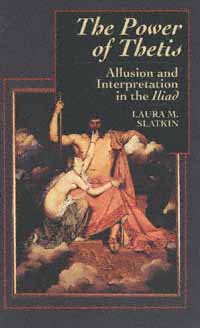 | Title: The power of Thetis: allusion and interpretation in the Iliad Author: Slatkin, Laura M Published: University of California Press, 1992 Subjects: Classics | Classical Literature and Language | Classics Publisher's Description: In The Power of Thetis, Laura M. Slatkin reveals the full importance of mythic allusion in Homeric composition and in the experience of Homer's audience. Similar Items |
| 2. | 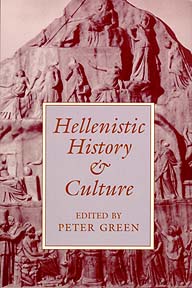 | Title: Hellenistic history and culture Author: Green, Peter 1924- Published: University of California Press, 1993 Subjects: Classics | Classical Philosophy | Ancient History | History Publisher's Description: In a 1988 conference, American and British scholars unexpectedly discovered that their ideas were converging in ways that formed a new picture of the variegated Hellenistic mosaic. That picture emerges in these essays and eloquently displays the breadth of modern interest in the Hellenistic Age.A di . . . [more] Similar Items |
| 3. | 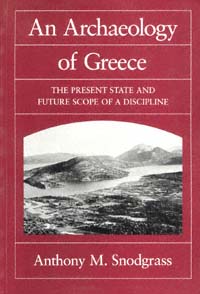 | Title: An archaeology of Greece: the present state and future scope of a discipline Author: Snodgrass, Anthony M Published: University of California Press, 1987 Subjects: Classics | Archaeology | European History Publisher's Description: Classical archaeology probably enjoys a wider appeal than any other branch of classical or archaeological studies. As an intellectual and academic discipline, however, its esteem has not matched its popularity. Here, Anthony Snodgrass argues that classical archaeology has a rare potential in the who . . . [more] Similar Items |
| 4. | 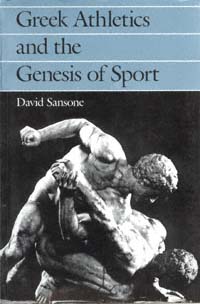 | Title: Greek athletics and the genesis of sport Author: Sansone, David Published: University of California Press, 1992 Subjects: Classics | Sports | Cultural Anthropology Publisher's Description: How is sport in contemporary society related to sport in earlier civilizations? Why is the expenditure of energy involved in sport considered exhilarating, while the equivalent expenditure of energy in other contexts can be dispiriting? David Sansone offers answers to these questions and advances a . . . [more] Similar Items |
| 5. | 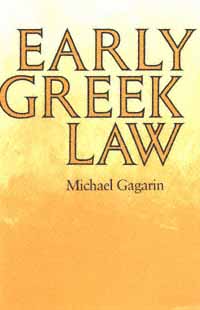 | Title: Early Greek law Author: Gagarin, Michael Published: University of California Press, 1989 Subjects: Classics | Classical Politics | Law Publisher's Description: Drawing on the evidence of anthropology as well as ancient literature and inscriptions, Gagarin examines the emergence of law in Greece from the 8th through the 6th centuries B.C., that is, from the oral culture of Homer and Hesiod to the written enactment of codes of law in most major cities. Similar Items |
| 6. | 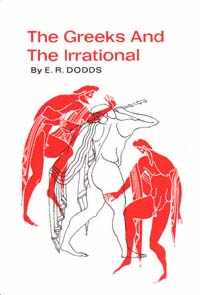 | Title: The Greeks and the irrational Author: Dodds, E. R. (Eric Robertson) 1893- Published: University of California Press, 1962 Subjects: Classics Similar Items |
| 7. | 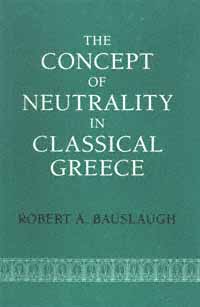 | Title: The concept of neutrality in classical Greece Author: Bauslaugh, Robert A Published: University of California Press, 1991 Subjects: Classics | Law | Classical History Publisher's Description: Looking at Classical warfare from the perspective of the non-belligerents, Robert A. Bauslaugh brings together the scattered evidence testifying to neutral behavior among the Greek city-states and their non-Greek neighbors. Were the Argives of 480/479 B.C. really "Medizers," as many have accused, or . . . [more] Similar Items |
| 8. | 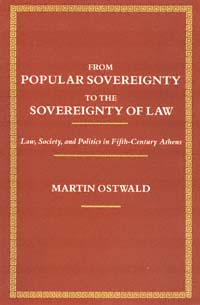 | Title: From popular sovereignty to the sovereignty of law: law, society, and politics in fifth-century Athens Author: Ostwald, Martin 1922- Published: University of California Press, 1987 Subjects: Classics | Classics | Classical History | Classical Politics Publisher's Description: Analyzing the "democratic" features and institutions of the Athenian democracy in the fifth century B.C., Martin Ostwald traces their development from Solon's judicial reforms to the flowering of popular sovereignty, when the people assumed the right both to enact all legislation and to hold magistr . . . [more] Similar Items |
| 9. | 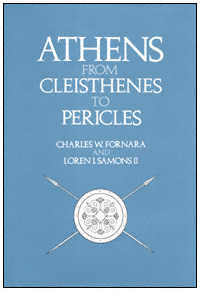 | Title: Athens from Cleisthenes to Pericles Author: Fornara, Charles W Published: University of California Press, 1991 Subjects: Classics | Classical History | Classical Politics Publisher's Description: By the mid fifth century B.C., Athens had become the most powerful city-state in Greece: a rich democracy led by Pericles that boldly gained control of an empire. Athens's strength under Pericles was the result of a complex interaction of events from the time of Cleisthenes. Fornara and Samons unrav . . . [more] Similar Items |
| 10. | 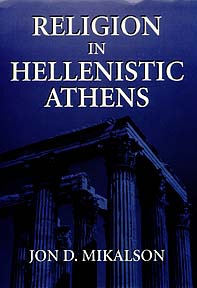 | Title: Religion in Hellenistic Athens Author: Mikalson, Jon D 1943- Published: University of California Press, 1998 Subjects: Classics | Classical Religions | Religion | Ancient History Publisher's Description: Until now, there has been no comprehensive study of religion in Athens from the end of the classical period to the time of Rome's domination of the city. Jon D. Mikalson provides a chronological approach to religion in Hellenistic Athens, disproving the widely held belief that Hellenistic religion d . . . [more] Similar Items |
| 11. | 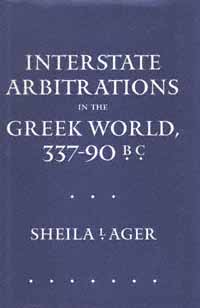 | Title: Interstate arbitrations in the Greek world, 337-90 B.C. Author: Ager, Sheila L 1956- Published: University of California Press, 1997 Subjects: Classics | Classical History | Ancient History Publisher's Description: A great deal of information has come to light over the past several decades about the role of arbitration between the Greek states. Arbitration and mediation were, in fact, central institutions in Hellenistic public life. In this comprehensive study, Sheila Ager brings together the scattered body of . . . [more] Similar Items |
| 12. | 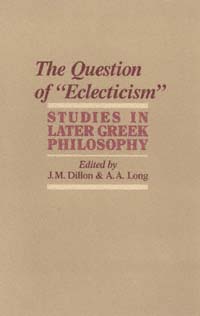 | Title: The Question of "eclecticism": studies in later Greek philosophy Author: Dillon, John M Published: University of California Press, 1988 Subjects: Classics | Classical Philosophy | Social and Political Thought Publisher's Description: This collection of essays is addressed to the growing number of philosophers, classicists, and intellectual historians who are interested in the development of Greek thought after Aristotle. In nine original studies, the authors explore the meaning and history of "eclecticism" in the context of anci . . . [more] Similar Items |
| 13. | 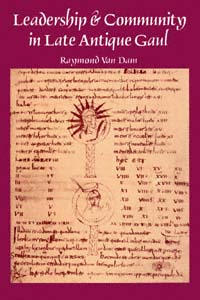 | Title: Leadership and community in late antique Gaul Author: Van Dam, Raymond Published: University of California Press, 1992 Subjects: Classics | Classical History | Classical Religions Publisher's Description: The rise of Christianity to the dominant position it held in the Middle Ages remains a paradoxical achievement. Early Christian communities in Gaul had been so restrictive that they sometimes persecuted misfits with accusations of heresy. Yet by the fifth century Gallic aristocrats were becoming bis . . . [more] Similar Items |
| 14. | 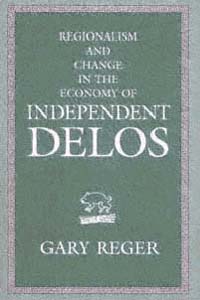 | Title: Regionalism and change in the economy of independent Delos, 314-167 B.C Author: Reger, Gary Published: University of California Press, 1994 Subjects: Classics | History | Archaeology | Economics and Business | Ancient History Publisher's Description: Gary Reger's highly original book applies modern statistical analysis to the detailed inscriptions at the Temple of Apollo on Delos. These inscriptions, discovered during excavations in the late nineteenth and early twentieth centuries, provide a wealth of information about the business and economic . . . [more] Similar Items |
| 15. | 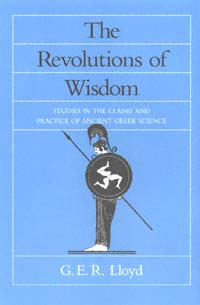 | Title: The revolutions of wisdom: studies in the claims and practice of ancient Greek science Author: Lloyd, G. E. R. (Geoffrey Ernest Richard) 1933- Published: University of California Press, 1989 Subjects: Classics | Classical History Publisher's Description: G.E.R. Lloyd's wide-ranging and historical study of the development of Greek science is a valuable contribution to current debates in the philosophy of language, on the analysis of scientific revolutions, and the rationality of science. Similar Items |
| 16. | 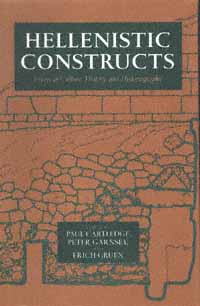 | Title: Hellenistic constructs: essays in culture, history, and historiography Author: Cartledge, Paul Published: University of California Press, 1997 Subjects: Classics | Classical History | History | Ancient History Publisher's Description: The Hellenistic period (approximately the last three centuries B.C.), with its cultural complexities and enduring legacies, retains a lasting fascination today. Reflecting the vigor and productivity of scholarship directed at this period in the past decade, this collection of original essays is a wi . . . [more] Similar Items |
| 17. | 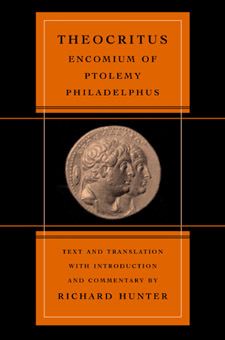 | Title: Encomium of Ptolemy Philadelphus Author: Theocritus Published: University of California Press, 2003 Subjects: Classics | Classical Literature and Language | Poetry Publisher's Description: Under Ptolemy II Philadelphus, who ruled Egypt in the middle of the third century B.C.E., Alexandria became the brilliant multicultural capital of the Greek world. Theocritus's poem in praise of Philadelphus - at once a Greek king and an Egyptian pharaoh - is the only extended poetic tribute to this . . . [more] Similar Items |
| 18. | 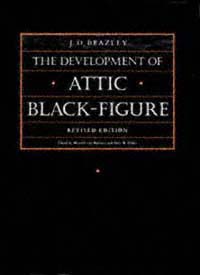 | Title: The development of Attic black-figure Author: Beazley, J. D. (John Davidson) 1885-1970 Published: University of California Press, 1986 Subjects: Classics | Art and Architecture Publisher's Description: The eight lectures that comprise this edition were first delivered by John Davidson Beazley in 1949. They were published in 1951 and soon became a of classical study of ancient Greek vases. This revised edition includes many additional illustrations. Similar Items |
| 19. | 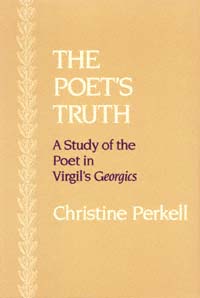 | Title: The poet's truth: a study of the poet in Virgil's Georgics Author: Perkell, Christine Published: University of California Press, 1989 Subjects: Classics | Classical Literature and Language Publisher's Description: The controversy over Virgil's optimism or pessimism, which has long absorbed readers of his poetry, might fruitfully yield to a perspective which allows contradictions to stand unresolved, to constitute, in fact, the essence of his poems' meaning. So interpreted, the pervasive contradictions of the . . . [more] Similar Items |
| 20. | 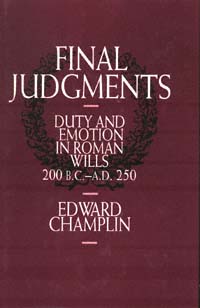 | Title: Final judgments: duty and emotion in Roman wills, 200 B.C.-A.D. 250 Author: Champlin, Edward 1948- Published: University of California Press, 1991 Subjects: Classics | Ancient History Publisher's Description: Freed from the familial and social obligations incumbent on the living, the Roman testator could craft his will to be a literal "last judgment" on family, friends, and society. The Romans were fascinated by the contents of wills, believing the will to be a mirror of the testator's true character and . . . [more] Similar Items |